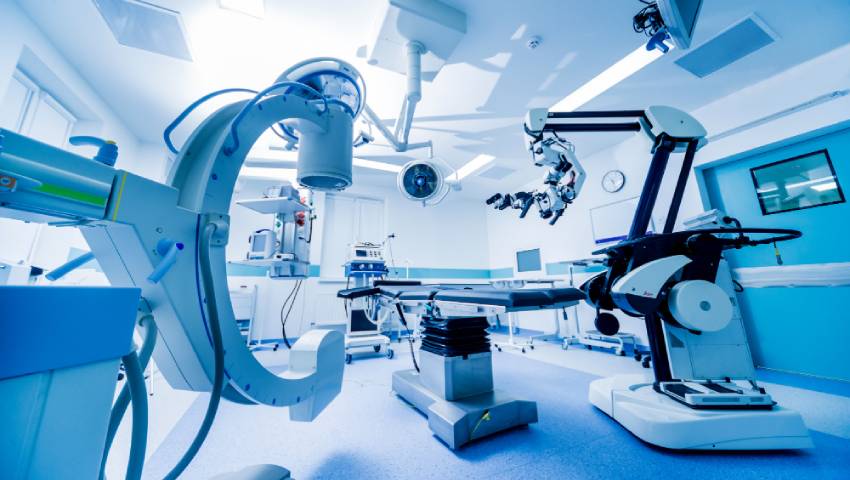
- 06/12/2023
- Dr. Kunaal Shinde
- 0 Comments
- Blog
Robotic Surgery for Recurrent Gynecologic Cancers Improving Outcomes
Are you curious about the latest advancements in gynecologic cancer treatment? This is an informative blog about Robotic Surgery for Recurrent Gynecologic Cancers Improving Outcomes By Dr Kunaal Shinde One of the best Gynecologist in Baner , Pune , Through this blog we delve into the world of robotic surgery for recurrent gynecologic cancers and how it is improving outcomes for patients. Specifically, we explore the expertise and insights of the Best gynecologist, in Baner Dr. Kunaal Shinde.
Robotic surgery has revolutionized the field of gynecology, offering minimally invasive procedures that enhance patient outcomes. With the precision and dexterity of robotic technology, Dr. Kunaal Shinde navigates complex cases with greater ease, providing his patients with safer and more effective treatments. Through this blog, Dr. Shinde shares his expertise on the benefits and limitations of robotic surgery in treating recurrent gynecologic cancers. We will explore its effectiveness in reducing complications, preserving fertility, and improving overall patient satisfaction.
Understanding Recurrent Gynecologic Cancers and Their Impact on Patients
Recurrent gynecologic cancers pose significant challenges for patients. These cancers, which return after initial treatment, can have a devastating impact on women’s lives. The physical, emotional, and psychological toll of recurrent gynecologic cancers is immense, making effective treatment paramount.
Traditional surgical approaches have limitations when it comes to treating recurrent gynecologic cancers. Open surgeries, which require large incisions, can lead to increased pain, longer hospital stays, and higher risks of complications. Additionally, the recovery period for open surgeries is often more prolonged and can result in significant scarring.
The Limitations of Traditional Surgical Approaches for Recurrent Gynecologic Cancers
Traditional surgical approaches, such as open surgeries, have long been the standard of care for recurrent gynecologic cancers. However, these methods have several limitations that can impact patient outcomes.
One major limitation is the invasiveness of open surgeries. These procedures require large incisions, which can lead to increased blood loss, longer hospital stays, and higher risks of infection. Additionally, open surgeries can result in more extensive scarring, affecting both physical appearance and psychological well-being.
How Robotic Surgery is Revolutionizing the Treatment of Recurrent Gynecologic Cancers
Robotic surgery has emerged as a revolutionary approach to treating recurrent gynecologic cancers. With the advancement of robotic technology, gynecologists like Dr. Kunaal Shinde can now perform minimally invasive procedures with enhanced precision and control.
Advantages of Robotic Surgery for Recurrent Gynecologic Cancers
- Reduced risk of complications: Robotic surgery’s enhanced precision and control minimize damage to surrounding tissues, leading to fewer post-operative complications and improving patient outcomes.
- Preservation of fertility: Robotic surgery’s minimally invasive techniques allow for the removal of cancerous tissues while preserving the reproductive organs, offering hope and options for women who wish to have children in the future.
Improving Outcomes with Robotic Surgery: Reduced Complications and Faster Recovery
- Robotic surgery has demonstrated its ability to improve outcomes for patients with recurrent gynecologic cancers. The minimally invasive nature of robotic procedures leads to reduced complications and faster recovery times, positively impacting patients’ overall well-being. Studies have shown that patients undergoing robotic surgery experience fewer postoperative complications compared to those undergoing open surgeries. The precise movements and targeted interventions of robotic surgery minimize the risks of damage to surrounding tissues, reducing the chances of infection, bleeding, and other complications.
- Additionally, the smaller incisions associated with robotic surgery result in faster recovery times. Patients experience less pain and discomfort, allowing them to return to their daily activities sooner. The shorter hospital stays associated with robotic surgery further contribute to improved patient satisfaction and reduced healthcare costs.
Conclusion:
The Promising Future of Robotic Surgery in Improving Outcomes for Recurrent Gynecologic Cancers. Robotic surgery has transformed the treatment of recurrent gynecologic cancers, offering patients safer and more effective options. With its minimally invasive approach, reduced complications, and faster recovery times, robotic surgery has the potential to significantly improve patient outcomes and overall quality of life.
Through the expertise and insights of gynecologist Dr. Kunaal Shinde, we have explored the benefits and limitations of robotic surgery in treating recurrent gynecologic cancers. The success stories of patients who have undergone robotic surgery underscore the transformative impact of this innovative approach.

.png)